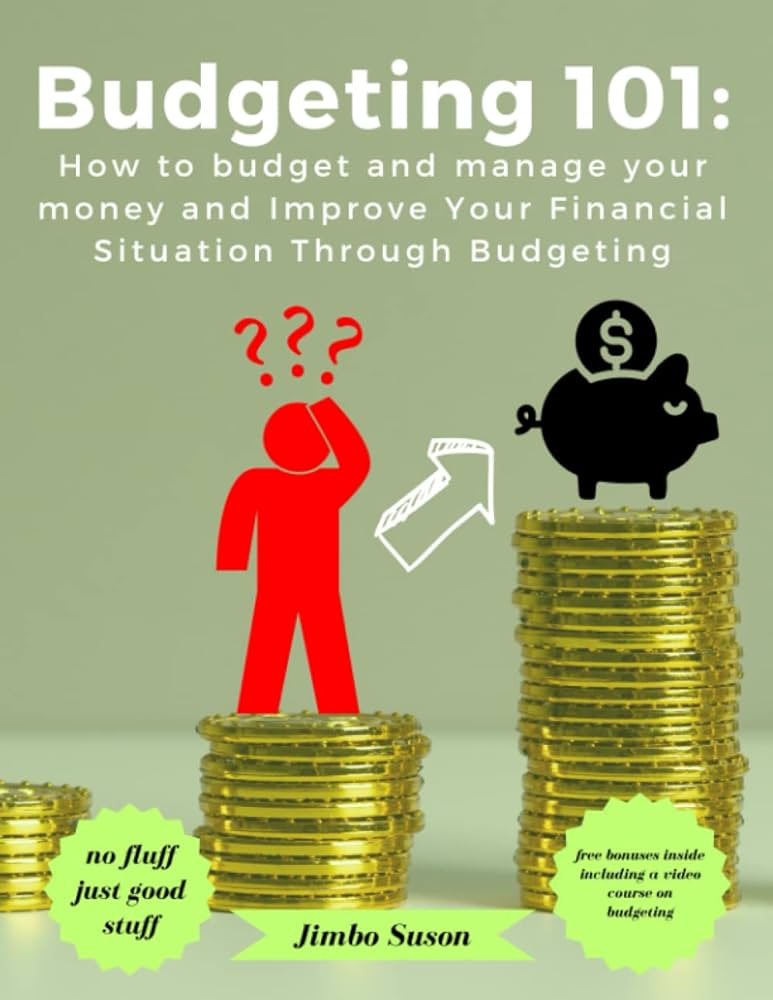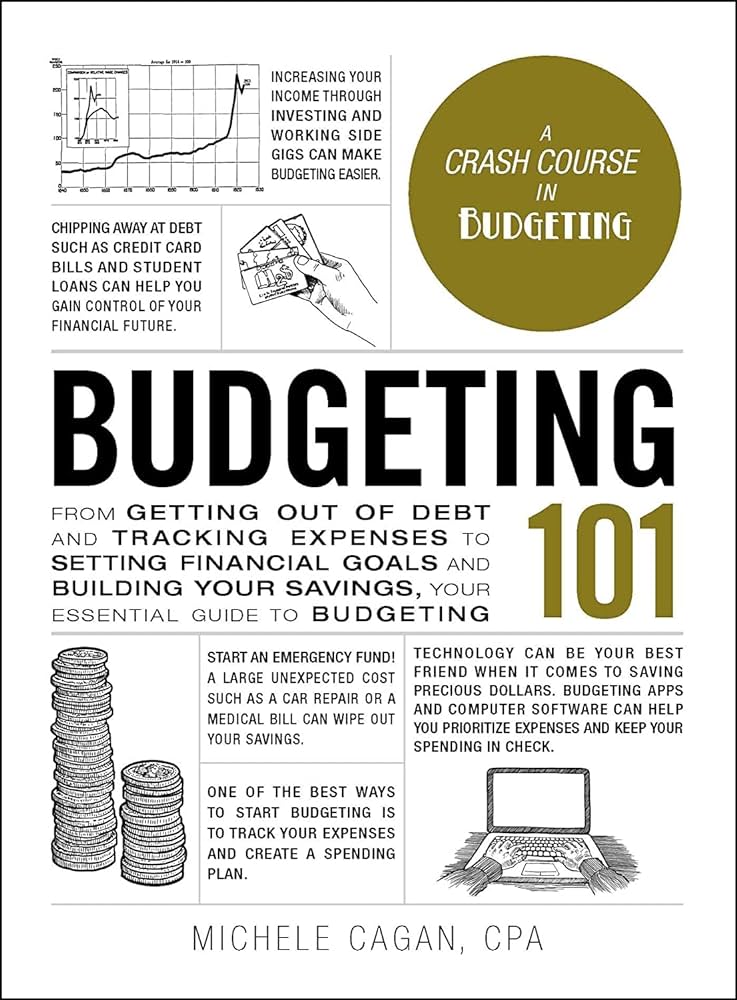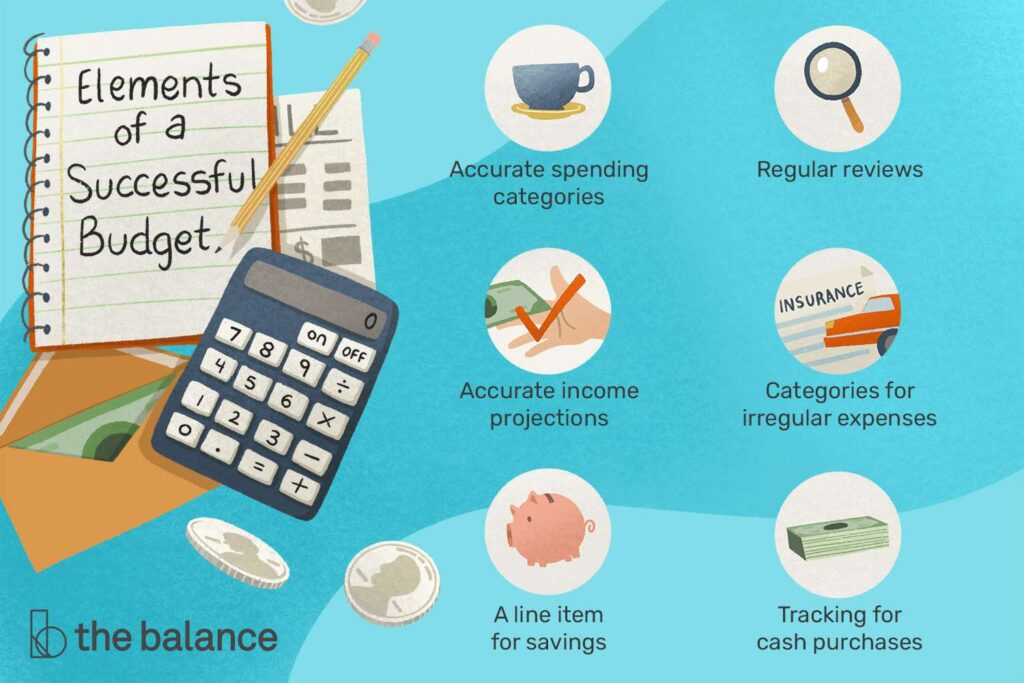Are you ready to take control of your finances and achieve financial success? Look no further than “Saving and Budgeting 101: Essential Tips for Success.” In this article, you will find practical advice and strategies to help you save money, create a budget, and make smart financial decisions. Whether you’re a beginner or want to reinforce your existing knowledge, these essential tips will guide you towards a brighter financial future. Get ready to take charge of your savings and budgeting in a friendly and accessible way.

Importance of Saving and Budgeting
Saving and budgeting are essential financial habits that can have a profound impact on your life. They allow you to take control of your finances, build wealth, and achieve your financial goals. By developing these habits, you can enjoy a more secure future and a stress-free financial existence.
Benefits of Saving
Saving is the foundation of financial stability. It helps you create a safety net for unexpected expenses, such as medical emergencies or major home repairs. Having savings also provides a sense of security during times of economic uncertainty, as you have a cushion to fall back on.
Additionally, saving allows you to work towards important long-term goals. Whether it’s buying a house, starting a business, or planning for retirement, saving ensures that you have the funds to turn your dreams into reality. It gives you the freedom to make choices based on your aspirations rather than financial limitations.
Benefits of Budgeting
Budgeting is an essential tool for managing your finances effectively. It allows you to track your income and expenses, ensuring that you are making informed decisions about how to allocate your money. A well-planned budget helps you stay on top of your bills, avoid unnecessary debt, and save for the future.
Budgeting also helps establish good financial habits. It encourages disciplined spending, making you more aware of your purchasing decisions. It forces you to prioritize your needs and wants, helping you distinguish between essential expenses and luxuries. Ultimately, budgeting empowers you to take control of your money and make it work for you.
Understanding Your Financial Situation
Before you can effectively save and budget, it’s important to understand your current financial situation. This involves analyzing your income, expenses, and financial goals.
Analyze Your Income and Expenses
Start by examining your income sources – your salary, investments, and any other sources of money you receive regularly. This will give you a clear picture of how much money you have coming in each month.
Next, analyze your expenses by tracking your spending for a few months. This will help you identify your recurring expenses, such as rent, utilities, groceries, and transportation, as well as discretionary expenses like dining out and entertainment. Understanding your expenses will allow you to make informed decisions about your budget and identify areas where you can potentially save.
Determine Your Financial Goals
Once you have a clear picture of your income and expenses, it’s time to determine your financial goals. These goals can range from short-term objectives, such as paying off debt or saving for a vacation, to long-term goals like buying a home or planning for retirement. By defining your goals, you can align your saving and budgeting strategies to achieve them.

Creating a Budget
Creating a budget is a crucial step towards financial success. It provides a roadmap for your financial journey, ensuring that your income is allocated efficiently and effectively. Here are the key steps to creating a budget:
Track Your Income
To create an accurate budget, start by tracking your income. Make a list of all the income sources you identified earlier and add up the total. This will give you a clear understanding of how much money you have available to allocate towards your expenses and savings.
List Your Expenses
Next, list all your expenses. Start with your fixed expenses, such as rent or mortgage payments, utilities, insurance premiums, and loan payments. Then, include your variable expenses, such as groceries, transportation, entertainment, and discretionary spending. Be sure to keep detailed records of your expenses so you can accurately track your spending.
Differentiate between Essential and Non-essential Expenses
Differentiating between essential and non-essential expenses is crucial in creating a budget that aligns with your financial goals. Essential expenses are those that are necessary for your basic needs, such as food, housing, and transportation. Non-essential expenses are luxuries or discretionary spending, such as dining out or entertainment. By identifying and prioritizing essential expenses, you can ensure that your budget focuses on the most important aspects of your life.
Allocate Funds for Savings and Debt Repayment
Once you have listed your expenses, it’s time to allocate funds for savings and debt repayment. Determine a realistic amount that you can set aside each month towards your savings goals and debt reduction. Prioritize debt repayment to avoid excessive interest payments and allocate the remaining funds towards your savings.
Saving Strategies
Saving is an essential part of your financial journey. Implementing effective saving strategies ensures that you are consistently working towards your goals and building a strong financial foundation. Here are some strategies to consider:
Set Savings Goals
Setting specific savings goals is crucial to stay motivated and focused. Whether you’re saving for a down payment on a house, a dream vacation, or retirement, knowing how much you need to save and by when will help you stay on track. Break down your goals into smaller, manageable milestones so that progress feels realistic and achievable.
Pay Yourself First
One of the most effective saving strategies is to pay yourself first. This means allocating a portion of your income towards savings before anything else. Treat savings like any other bill and prioritize it in your budget. By making saving a priority, you ensure that you are consistently building your financial security.
Automate Your Savings
To make saving even easier, consider automating your savings. Set up automatic transfers from your checking account to a savings account. This way, a portion of your income will be saved without any effort on your part. Automating your savings also eliminates the temptation to spend the money before saving it.
Cut Back on Unnecessary Expenses
Another effective saving strategy is to cut back on unnecessary expenses. Review your budget and identify areas where you can reduce spending without compromising your quality of life. This could be as simple as bringing your lunch to work instead of eating out, canceling unused subscriptions, or finding more affordable alternatives for your everyday expenses.

Debt Management
Debt can be a significant obstacle to financial freedom. Managing your debt effectively is crucial to avoid falling into a cycle of increasing interest payments and financial stress. Here are some steps to take to manage your debt:
Assess Your Debt
Start by assessing your debt situation. Make a list of all your debts, including credit cards, student loans, car loans, and any other outstanding balances. Note down the interest rates, minimum payments, and total amounts owed. Understanding the full extent of your debt will help you create an effective repayment plan.
Create a Repayment Plan
Once you have a clear picture of your debt, it’s time to create a repayment plan. Start by listing your debts from highest interest rate to lowest. Focus on paying off the debt with the highest interest rate first while continuing to make minimum payments on other debts. Once the first debt is paid off, allocate the funds towards the next highest interest rate debt. This approach, known as the debt avalanche method, helps minimize interest payments and accelerate your debt repayment.
Consider Debt Consolidation
If you have multiple debts with high interest rates, consider consolidating your debt. Debt consolidation involves combining all your debts into one loan with a lower interest rate. This can help simplify your repayment process and potentially save you money on interest payments.
Negotiate with Creditors
If you’re struggling to make your debt payments, don’t hesitate to reach out to your creditors. Explain your situation and ask if they can offer any assistance, such as lower interest rates or a temporary payment plan. Many creditors are willing to work with you to find a mutually beneficial solution.
Ways to Increase Income
Increasing your income is an effective way to accelerate your savings and debt repayment. Here are some strategies to consider:
Evaluate Alternative Income Sources
Consider exploring alternative sources of income. This could include freelancing, starting a side business, or investing in rental properties. Diversifying your income streams can provide a safety net during economic downturns and help you reach your financial goals faster.
Investments and Passive Income
Investing is another way to generate passive income and increase your wealth. Consider investing in stocks, bonds, real estate, or other assets that align with your risk tolerance and financial goals. Keep in mind that investing involves risks, so be sure to do thorough research and seek advice from a financial professional if needed.

Sticking to Your Budget
Creating a budget is only the first step. Sticking to it can be a challenge, but it’s crucial for long-term financial success. Here are some tips to help you stay disciplined:
Stay Disciplined
Maintain a mindset of discipline and self-control when it comes to your budget. Remind yourself of your financial goals and the benefits of sticking to your budget. Avoid impulsive purchases and be mindful of your spending habits. Regularly review your budget to ensure you’re on track and make adjustments as needed.
Make Adjustments as Needed
Life is full of unexpected changes, and your budget should reflect that. Be flexible and willing to adjust your budget as circumstances change. If you experience a decrease in income or an unexpected expense, review your budget and make necessary adjustments to ensure you can continue to meet your financial obligations and savings goals.
Emergency Savings
Building an emergency fund is crucial to protect yourself from unexpected financial setbacks. Here’s why emergency savings are important:
Importance of Emergency Funds
Life is full of unforeseen events – job loss, medical emergencies, car repairs – and having an emergency fund can mean the difference between financial security and hardship. An emergency fund provides a financial safety net, allowing you to cover unexpected expenses without resorting to debt or depleting your savings.
Setting Up an Emergency Fund
To set up an emergency fund, start by determining how much you need to save. Aim to have at least three to six months’ worth of living expenses in your emergency fund. Set up a separate account specifically for emergency savings and make regular contributions until you reach your target. Treat this fund as untouchable unless a genuine emergency arises.

Avoiding Common Budgeting Mistakes
To ensure the success of your budgeting efforts, it’s important to avoid common mistakes that can undermine your financial stability. Here are some pitfalls to watch out for:
Underestimating Expenses
One common mistake is underestimating your expenses. Ensure that you have accounted for all your expenses, including irregular and annual expenses like car registration fees or holiday gifts. A thorough understanding of your true expenses will prevent surprise bills and help you create a realistic budget.
Not Saving for Retirement
While it may seem far off, saving for retirement should be a priority from day one. Many people overlook this aspect of budgeting and delay saving for retirement until it’s too late. Start saving for retirement as early as possible to take advantage of compound interest and ensure a comfortable future.
Ignoring Small Expenses
Small expenses, like a daily coffee or eating out for lunch, can add up over time and derail your budget. Pay attention to these seemingly insignificant expenses and consider ways to reduce or eliminate them. Small changes can have a significant impact on your overall financial health.
Seeking Professional Help
If you find it challenging to manage your finances on your own or need expert guidance, seeking professional help can be beneficial. Here are two options to consider:
Working with a Financial Advisor
A financial advisor can provide personalized guidance tailored to your financial situation. They can help you create a comprehensive financial plan, make investment decisions, and navigate complex financial situations. When choosing a financial advisor, ensure they are reputable and certified to provide the services you require.
Enrolling in Financial Literacy Programs
Financial literacy programs are designed to educate individuals on personal finance, budgeting, and investing. These programs often offer workshops, online courses, and resources to help you enhance your financial knowledge and skills. Taking advantage of these resources can empower you to make informed financial decisions and take control of your money.
In conclusion, saving and budgeting are essential tools for achieving financial success. By understanding your financial situation, creating a budget, and implementing effective saving and debt management strategies, you can build wealth, achieve your goals, and enjoy peace of mind. Stay disciplined, adjust as needed, and consider seeking professional help when necessary. With the right mindset and habits, you can take control of your finances and create a brighter financial future for yourself.

